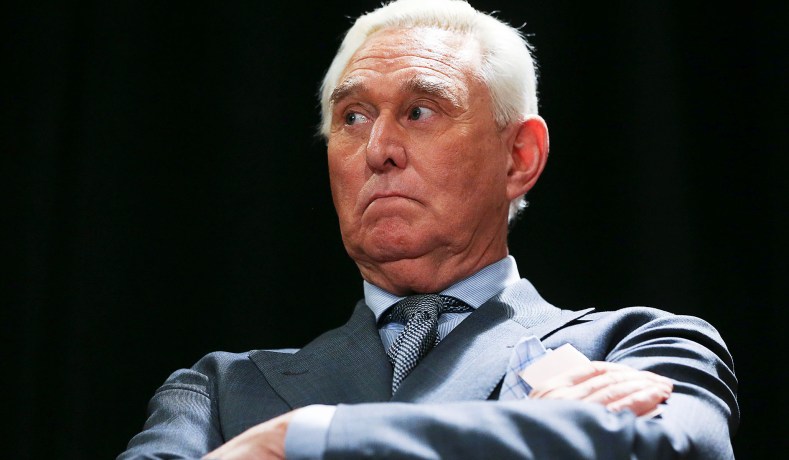
I agree with my friend Andy McCarthy that it is impossible to maintain an effective system of justice without punishing lying under oath, that Roger Stone is plainly guilty of the crimes with which he was charged, that there was “overwhelming evidence” in the case, as Andy said on the radio the other day, and that the DOJ recommendation in this proceeding represents “a faithful application of the federal sentencing guidelines as written.”
I am less moved by Andy’s tenderheartedness toward this “67-year-old nonviolent first offender.” To be fair, his point there is more about what he sees as the hypocrisy of certain would-be reformers of the criminal-justice system, who typically do not favor lengthy prison sentences for first-time nonviolent offenders who are not buddies with Donald Trump. But I am not sold on that appeal, either. In my view, it is proper that crimes furthering political corruption receive especial attention.
I also agree with Andy and with Kevin Brock that there is a very strong suggestion of a double standard in the difference between the treatment given to Roger Stone and that given to Andrew McCabe.
But the cure for a double standard is not the abandoning of all standards. It is a great failing of our justice system that Lois Lerner and the other Obama-era IRS miscreants are not currently warming up a cell for Roger Stone. But our failure in that matter does not excuse inaction in this matter.
I have heard from a few critics who sniff that I would see Stone punished more severely than, say, those convicted on federal drug-dealing charges. That is absolutely correct. Those who dismiss Stone’s offenses as mere “process crimes” should consider that perjury is a process crime, and a crime because it corrupts the process.
Stone seems to believe — and maybe has good reason to believe — that his political connections and his friend in the Oval Office give him license to indulge in petty corruption of the sort that resulted in his current predicament. But we as a people should not accept that. Corruption on the part of politically powerful and politically connected people — even such trifling villains as Roger Stone — should be met with exemplary punishment. I would sooner see a hundred drug traffickers go free than one highly placed perjurer.
A similar argument once was made in defense of Bill Clinton: that he may have committed perjury, but he did so in the course of an investigation that was fundamentally trivial if not illegitimate, one that was certainly driven by politics. But if the highest official of the federal executive cannot be expected to tell the truth in the course of a federal investigation, even an embarrassing and politically charged one, then we will have lawlessness.
A similar expectation should hold for the counselors and associates of men in high office. On that point, Rush Limbaugh offers an interesting defense of Stone: that he is a peon, that he is too insignificant a person for his lies and threats to matter and to be taken seriously. Perhaps Stone’s crack legal team can incorporate that in an appeal; it does not seem to have occurred to them to follow that line of defense so far.
One of the things I always have admired about G. Gordon Liddy is that he is not a whiner. He did his time (52 months of a 20-year sentence before commutation by President Jimmy Carter), without too much complaint, because he was obviously, undeniably guilty of the charges: conspiracy, burglary, wiretapping. He has at times since then made a mockery of the law: As a convicted felon, he is not allowed to own firearms — “Mrs. Liddy has an absolutely fascinating collection of firearms,” he told an interviewer, “some of which she keeps on my side of the bed.” (Liddy’s 1990s essay in Forbes about choosing a firearm for home defense is a wonderful piece of writing, if you can find it.) But he took his hits. Roger Stone, with his dopey Nixon tattoo, apparently thinks of Watergate as the Woodstock he was born too late for — a reminder to be careful of what you wish for.
Conservatives used to believe in the rule of law. They should think long and hard before abandoning it.




